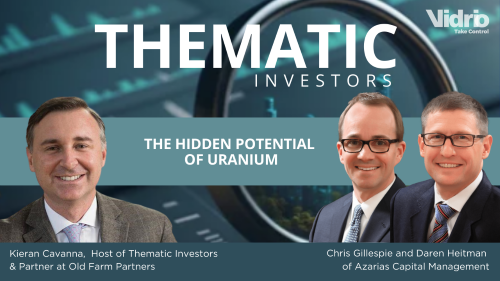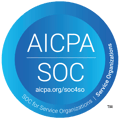Discover the insights from Vidrio Financial on the latest updates to the SEC private fund rules and how we are assisting allocators in managing data, compliance, performance, and more within their multi-asset class portfolios.
By: Mazen Jabban, Chairman & CEO, Vidrio Financial
In a game changing move, the Securities and Exchange Commission (SEC) released its final private fund rules which are being seen as the biggest change to impact the industry since 2008.
For those not all that familiar with the final SEC rules release, Chair Gary Gensler stated that, “By enhancing advisers’ transparency and integrity, we will help promote greater competition and thereby efficiency. Consistent with our mission and Congressional mandate, we advance today’s rules on behalf of all investors — big or small, institutional, or retail, sophisticated or not.”
Taking a step back since these rules were released in July, we expect some of the knock-on effects will put significant pressure on private fund managers to increase their reporting and compliance procedures, up their need for experience lawyers and compliance staff to fill this gap, while putting an added emphasis on service providers like Vidrio to help fill some of these personnel and institutional knowledge gaps.
Vidrio Financial perspectives on the details of these rules are as follows:
Navigating Preferential Treatment and Side Letter Challenges
When looking at the side letter rules, we believe there are three main challenges as it relates to changes regarding this ruling.
1. Different liquidity terms.
2. Different fee structures.
3. Transparency into a fund's underlying holdings.
Prior to Vidrio’s launch, where I founded Focus Investment Group, our primary objective was to constantly strive for improved terms regarding liquidity, fees, and improved transparency regarding portfolio level holdings.
Following some of the issues that came to the boil in 2008 that included large investors receiving preferential treatment on redemptions and better liquidity options, the value of tracking liquidity has become a greater focus. At Vidrio, we believe this new liquidity rule will disproportionately affect smaller managers, as larger funds have the advantage of scale and can navigate around these restrictions by offering various funds with different fees, liquidity terms, and ticket sizes, where smaller managers will not have this luxury given their size.
Improved levels of transparency, at the forefront of these regulations, also perfectly aligns with Vidrio's core mission and the translation of our name in Spanish meaning ‘glass’ for transparency and clarity.
Since our launch, our mission has always been to bring improved levels of transparency to every aspect of our portfolio workflows, from advanced risk analytics and portfolio monitoring to investor research, due diligence, and reporting.
These improved levels of transparency empower institutional investors, especially in private allocations, to identify, measure, investigate, and analyze known and hidden risks that may arise during rebalancing and future allocations to alternative investments. In our previous report from the Middle East forum, we highlighted the concerns that many private investors have regarding inconsistent data, reporting errors without a reliable data source, and a loss of control due to limited bandwidth from investment teams.
These issues are not exclusive to Middle East allocators, and we firmly believe that transparency will continue to gain importance as investors seek to be better informed of the risks of their private market allocators and use these deeper insights to help them better manage their investments and overall portfolios risks.
Quarterly Statements, Fees & Expenses
When it comes to adhering to the new quarterly statement rules, we believe Vidrio is well positioned to assist institutional investors in the monitoring of private funds data that include fund level fees, fund expenses, performance, and any compensation around the fund. The rule states that investors should expect to receive quarterly statements within 45 days after the first three fiscal quarters ends of each fiscal year, and then 90 days after the end of each fiscal year. In the case of private fund of funds those numbers jump to 75 and 120 days respectively.
In the area of tracking capital calls, Vidrio can assist clients in keeping a watchful eye over specific private fund documentation collection and management when a GP may require additional funds outside of the capital call agreements. According to the ruling, the use of subscription lines of credit and subsequently ‘juicing’ a funds internal rate of return may still be allowed, however private fund clients must receive a written description of the material terms of the extension of credit as well as the investors consent from the adviser. Through Vidrio’s advanced cashflow reporting clients would be able to set up reports showing IRRs with and without capital call performance, to account for times when a loan or extension of credit was leveraged for the private fund. This would grant increased clarity to those investors jumping into the private market fray seeking the verification of performance IRRs and other cash flow statistics.
What about compliance teams?
Recent conversations around compliance in light of these rulings are also starting to bubble up with one study quoting that new audit requirements and quarterly performance reports would cost the industry around $961mn annually. This includes excess legal staffing to interpret rules as well as an integrated tech stack that can track fees, expenses, performance data, and any side letters as detailed above. Vidrio’s compliance infrastructure can adapt to any rule on any data that is imported into the platform. Clients can use the logic to implement guidelines to create notifications or trigged workflows on some of the following:- If a fund or manager has exposures to certain restricted sectors, regions, or positions to send and email notification or trigger a due diligence review workflow.
- If the fund or manager has a loss greater than a fixed amount or an amount relative to the benchmark, or the volatility greater than a certain fixed or relative amount then trigger notification or workflow.
Through these compliance rules our clients can manage hundreds of managers at once within their portfolios as well as automating these guidelines to run on an ongoing basis. This is something that we believe will be crucial as more compliance check-ins will be necessary for these ongoing regulations. Private fund investing should not be entered into lightly and endowments, foundations, pensions and other institutional players will need to set up protections to be better aligned with the recently adopted rulings.
As we continue to see increased interest in private fund investments, the ability to possess comprehensive portfolio intelligence, achieved through advanced transparency and vigilant monitoring, is crucial in my mind. This level of detail of actionable insights, delivered through a dynamic, real-time dashboard empowers allocators to make informed decisions and continuously push the boundaries of innovation.
While the Managed Funds Association and the American Investment Council have expressed concerns about the potential negative impact on investors and fund managers given these changes, we believe that ignoring the importance of reliable data, including fees, external credit lines, can lead to rising costs and hinder efforts to enhance transparency and improve fiduciary performance outcomes.
As of the latest tally, Vidrio Financial monitors hundreds of private funds on a quarterly basis, encompassing a diverse range of sectors such as infrastructure, private credit, private equity, and real estate. This momentum shows no signs of slowing down, with an estimated growth of around 30% expected by the end of the year.
Curious to delve deeper into the innovative solutions offered by Vidrio Financial for institutional investors? Don't hesitate to get in touch with us today and discover how we empower investors to achieve alpha and provide greater private fund transparency in light of these new SEC regulations.





